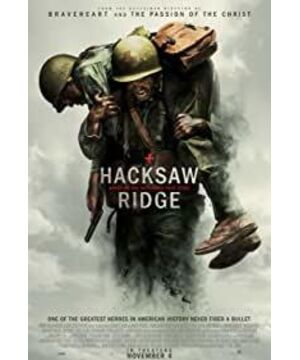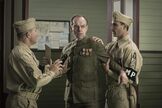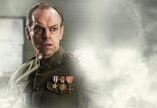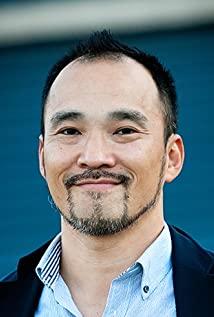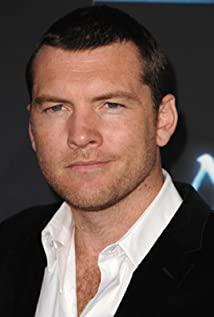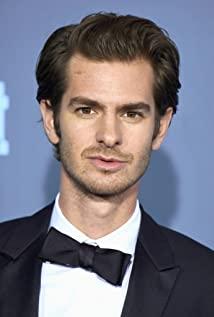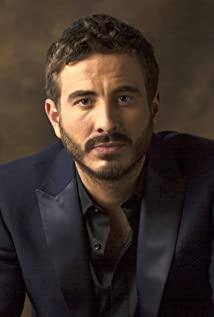In 1995, after only directing the second film, he was the first to test the waters of commercial production, and he turned out to shoot a masterpiece that may be the pinnacle of his life - "Braveheart". Not only was the film a great commercial success, it also won ten nominations at the 68th Academy Awards, and won five awards including Best Picture, Best Director, and Best Cinematography.
You know, this man made his debut with his looks and became world-famous for his action movies, and he was not even 40 years old when he won the Oscar.
You let Martin Sykesses, the great director who won the Oscar after 46 years of filming, be in his 70s.
There was a lot of calls for winning the award that year, but it was Ang Lee who directed "Sense and Sensibility" who regretted "Braveheart".
"Braveheart" is like a ceiling, forever pressing on Mel Gibson's head, and he has never been able to make a work that can completely surpass this film, and he has not been able to create a comparable Wallace. Role.
But Mel Gibson is a rare and reliable director. So far, he has directed a total of 6 works, almost all of which have been missed in terms of quality, and the commercial cost-effectiveness is staggeringly high. If it weren't for his chaotic private life and overly outspoken bad temper, he should have been the darling of Hollywood capitalists.
But the reality is always full of drama. This superstar with excellent talent, excellent choreography, and excellent acting skills was ruthlessly blocked by Hollywood because of domestic violence scandals and anti-Semitic remarks. For ten years, he has not been able to direct another film. The former top superstar can only play villains and supporting roles in some low-budget productions and B-level films.
Even today, we see his new work "Blood Battle Hacksaw Ridge". Careful attention, there is still no big Hollywood studio at the beginning, and the investment of 40 million US dollars is really too tight for a war movie today.
Looking at Mel Gibson again, the sexy actor who was full of mature men's charm in those days has almost become Marx, and people can't help feeling that the years are ruthless. The past ten years are too great a loss for Mel Gibson himself and the audience. .
Fortunately, he is back.
With his most familiar war themes, with his favorite religious atmosphere, with the bloody scenes and violent scenes he is best at, this hot-tempered Australian man is back.
"Hacksaw Ridge" is not Mel Gibson's best movie. It is not as good as "Braveheart". Simply comparing "Revelation" or "Passion", I personally think there is a gap.
After all, Mel Gibson has been away from the director's position for ten years. Regardless of the theme, narrative method or script rhythm, "Blood Battle Hacksaw Ridge" still carries the experience and taste of ten years ago, and basically continues the very traditional Hollywood theme aesthetics. After watching the whole film, the story is smooth, the scenes are exciting, the theme is clear, and the emotions are abundant, but there is no surprise or surprise. The film is about an alternative war hero step by step. How to persevere in war through non-violent methods And show their humanitarian and patriotic zeal.
In the Pacific battlefield in 1942, the U.S. military began to gradually regain the initiative in the sea and approached the Japanese mainland step by step.
But unlike the navy, which gradually opened up the situation smoothly, the small islands in the Pacific Ocean have become a nightmare for the US Marine Corps. The Japanese defenders stationed on the island, with the consciousness of jade broken, transformed the island into a death fortress full of bunkers and secret passages with amazing perseverance and incredible madness. The U.S. Marine Corps paid an extremely painful price, and every step forward will pay huge casualties. From Gwadar to Peleliu, and then to the hell-like Iwo Jima, the U.S. military finally came to Okinawa, in front of the southern gate of Japan.
The story of the film takes place in the battle on Okinawa. The protagonist, the military doctor Desmond Doss, is a soldier who refuses to carry guns because of his beliefs, and he suffers from misunderstanding and exclusion from other soldiers. But it was he who rescued 75 wounded comrades from the front line to safety almost entirely by himself during the battle at Hacksaw Ridge.
This is a true story, for which the protagonist Dawes received the highest military honor in the United States, the Congressional Medal of Honor, and is the only Conscientious Objector (a person who refused military service because of his religious beliefs) to live to receive this honor.
Such a story takes a different approach from a cookie-cutter film that promotes patriotism and displays the violence of war, telling an alternative hero in extreme contrast.
He opposed violence, refused to kill, and was in a purgatory-like battlefield. He was misunderstood and ostracized by his colleagues, but he did not change his original intention. In a life-and-death environment like war, he gained respect and recognition in his own unique way. He only saves people, not kills. He saves dying comrades, even enemies. When such an extremely contradictory and complex individual was placed in the grand background of the Second World War, and the symbols of religion and belief were installed, a wonderful drama naturally occurred.
Mel Gibson is undoubtedly divisive in this film as well. Needless to say, he is full of visceral love for violent scenes. The film unrestrainedly shows the battlefield in nuanced detail. He entered the hole, but burst open behind him; he was driven to pieces by the blast, and half of his face was cut off by bullets; in the battlefield, bullets swept mercilessly with howling, and before people could react, they were easily penetrated and lost their lives. Blood, corpses, fearful expressions, distorted faces, and extreme violence are carefully depicted on the screen, but it is to pave the way for a "don't kill" belief.
But the theme of the movie is about compassion and redemption. It tells how a faithful oath-keeper fights alone in war. He has to deal with prejudice and misunderstanding, and he has to survive on the ruthless battlefield by relying on flesh and blood to save others. .
On the battlefield, the boundaries between life and death are blurred, people live like ants in the hustle and bustle of artillery fire, all killing and being killed are trivial in grand words, the only meaningful thing is to save those who survived, 75 a precious life.
If this is just made up, then the audience will most likely find it hypocritical and deliberate, even too whimsical and unrealistic. In some cultural contexts that advocate heroism, someone like Desmond Dawes must be questioned, and even if he completes the feat of saving 75 people, he may not necessarily prove to be a good person. This kind of thing can be judged by reading our own history and looking at the value preferences currently occupying the mainstream.
Fortunately, the movie has already announced at the beginning that all this comes from the truth. There really are such elusive people and incredible things in the world. He makes us feel that even in war, regardless of winning or losing, good and evil will really happen. There are miracles that can surpass ordinary people's perception.
As a medium-scale investment film, "Blood Battle Hacksaw Ridge" is not a big war movie. Its shots are almost fixed between medium and close-up shots and close-up shots. All the stories on the battlefield take place in a limited corner. It was Gibson who insisted on carefully using CG special effects like a craftsman, and highlighted the brutal and violent side of war through real shooting.
In recent years, war themes have become less and less favored by producers, with high costs, high risks, and relatively narrow audiences. In the domestic theater chain, it is still a "giant system of gifts" that tries to fish in troubled waters. It writes the glory of the revolution with grand heroism and romanticism, so it is a long time to see such a solid World War II movie. Mel Gibson's work, even if it sings a different theme, is a very good experience.
What values will the film convey to the audience? Would such a film make people more addicted to violence, or would it be a reflection on war? It's a topic outside of the movie. At least you have watched "Blood Battle Hacksaw Ridge", and you will know that war will never be as righteous and passionate as expressed in some divine dramas. More often, it has nothing to do with justice, but just fights with fear, and wins a survival in the chaos down chance. In the process of war, even under the banner of incomparable political correctness, there will definitely be different ideas and different people, fear war, respect others, don't be blinded by arrogance and prejudice, maybe one day save us Those who have been misunderstood and despised by us.
Of course, the most important thing is that, anyway, "he" is back.
View more about Hacksaw Ridge reviews


